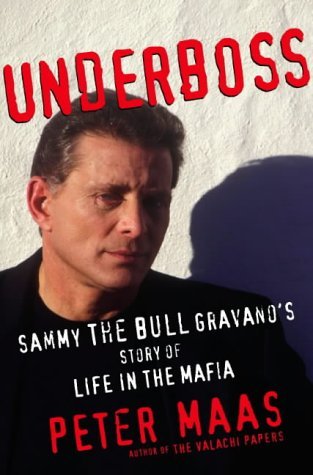Underboss by Peter Maas (1997-04-24)
Peter Maas
BOOK REVIEW

In the shadowy underbelly of organized crime, Underboss by Peter Maas unearths raw, unsettling truths that resonate far beyond the gritty pages. The work does not simply tread the familiar turf of mafia tales-it grips you by the throat and throws you into a world where loyalty is built on blood, betrayal is a currency, and the line between good and evil is obscured by a veil of desperation and power.
At its core, this riveting biography revolves around the life of Salvatore "Sammy the Bull" Gravano, the infamous underboss to the notorious Gambino crime family. Maas skillfully peels back layers of Gravano's life, revealing a chilling portrait of a man molded by violence and survival. Each chapter forces you to grapple with a duality of admiration and revulsion, a magnetic pull that leaves readers questioning their own moral compass. How does one reconcile with a killer who is not only pragmatic but astoundingly charismatic? The tension is palpable, sparking a dialogue about the very fabric of ambition and morality.
The backdrop Maas employs is as fascinating as his subject. The socio-political climate of New York in the latter half of the 20th century sets the stage, displaying how crime intertwined with the American Dream. As you dive deeper into this narrative, you find yourself reflecting on how the roots of organized crime are not just planted in the soil of greed, but also watered by a system rife with complications, corruption, and a historical narrative that is often overlooked.
Critics have lauded Maas for his unflinching approach. They see Underboss not merely as a recounting of events, but as a powerful exploration of the psyche behind a man whose very identity is steeped in the Mafia ethos. One reader remarked, "It's like you're sitting across the table from Gravano; you can almost feel the weight of his decisions." This account transcends mere biography; it acts as a mirror reflecting a warped society where crime often feels inevitable, even alluring.
Yet not all reactions are rose-tinted. Some argue that Maas glorifies a monster, risking the romanticization of criminality. This debate is critical and genuine, emphasizing the responsibility an author bears when penning such formidable narratives. As you peruse this gripping tale, you cannot ignore the complexities. Are Mavericks like Gravano heroes or villains? Are their narratives a cautionary tale or a twisted seduction?
Amid visceral descriptions of violence, intelligence, and strategy, Maas challenges you to reckon with these uncomfortable truths. As you turn the pages, the stakes seem higher, the stakes increasingly personal. You are not just reading; you are living through each revelation of brutal choices interspersed with glimmers of familial love and loyalty.
In an era desperate for authenticity amid a plethora of sensationalized stories, Underboss stands out. Its legacy resonates through the shifting perceptions of organized crime in our modern world, inspiring those who seek to understand the darker corridors of human nature. As you close the final chapter, a question lingers-how well do we truly know the monsters we create, the sacrifices they make, and the price they demand for their allegiance?
So, I urge you to confront this work. The haunting narratives within Underboss leave you shaken, ready to engage with the complexities of morality, loyalty, and the often murky waters of power. After all, in a world drenched in gray, the truths we glean from these tales define not just the stories of others but our own paths ahead.
📖 Underboss by Peter Maas (1997-04-24)
✍ by Peter Maas
1724
#underboss #peter #maas #1997 #peter #maas #PeterMaas